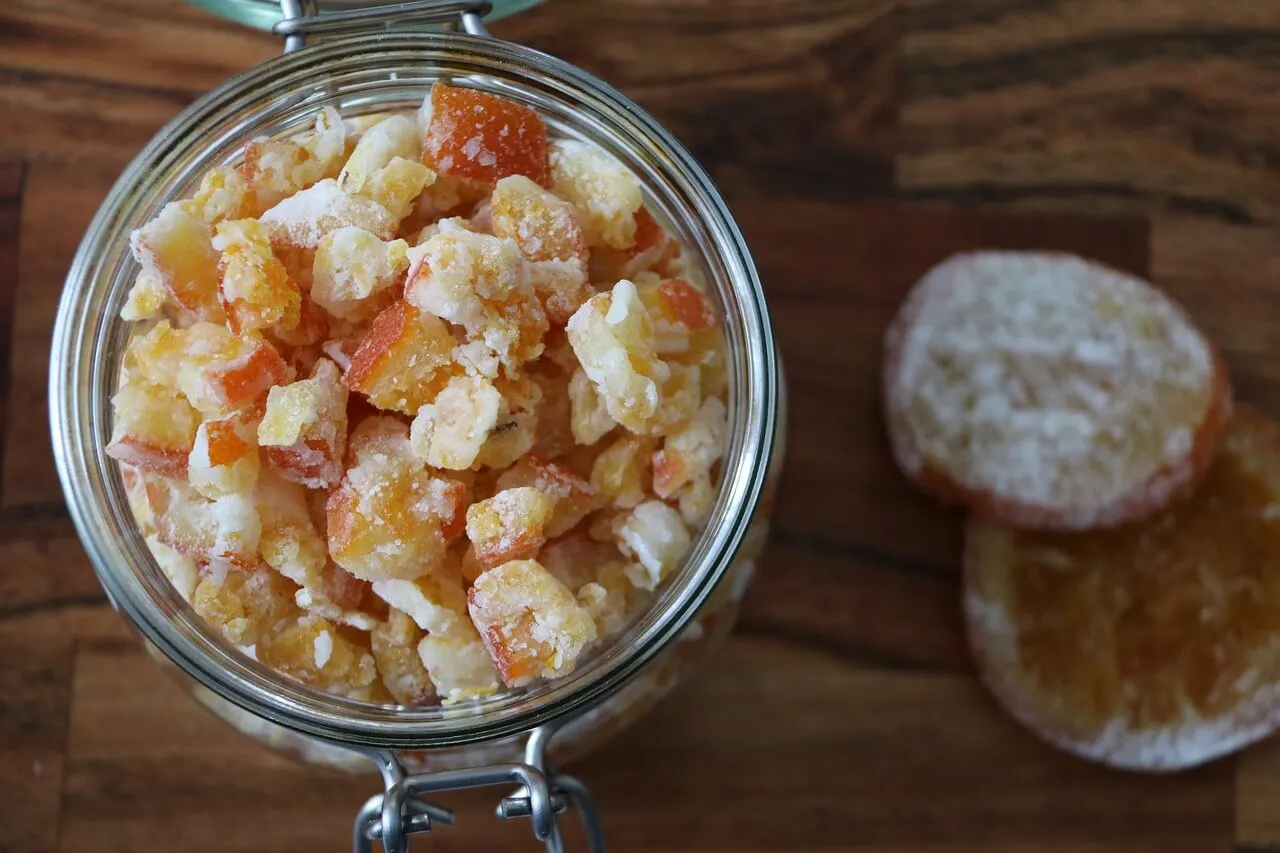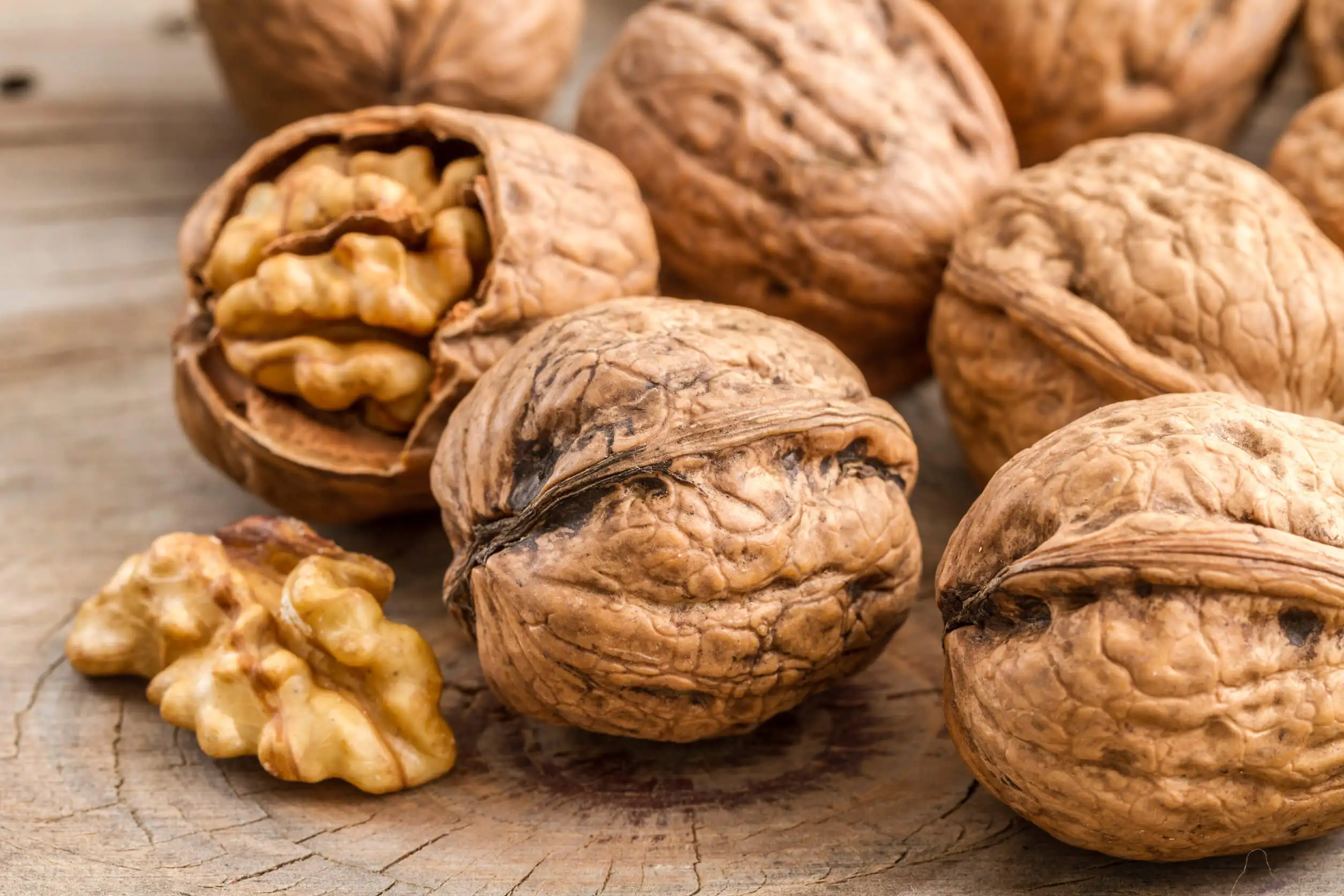The 5 Enemies of Your Dental Health During the Holidays


Written and verified by the dentist Vanesa Evangelina Buffa
Some of the common customs of the Christmas holidays can put our dental health at risk. Excesses, unhealthy foods, and carelessness are a combo that affects the structures of the mouth and negatively impacts your dental health during the holidays.
During Christmas celebrations, oral care can often take a back seat. If we add to this the frequent consumption of sweets, nuts, alcohol, and soft drinks, our dental health is put on alert.
It’s common to feel that, during the holidays, everything is allowed. We assume that, for a couple of days of carelessness, nothing happens. However, neglecting dental care habits can have serious consequences for the mouth.
Discover these 5 enemies of your dental health during the holidays and what you can do to celebrate without compromising your smile.
1. Dental Health During and the Holidays: The sweets
The Christmas holidays are a time of many desserts, sweets, nougats, marzipans, panettones, chocolates, donuts, cakes, and more and more sugar. All these Christmas delicacies have in common this ingredient that threatens oral health.
Sugar consumption at Christmas time tends to increase in most households. According to a study (Spanish link) on the average expenditure of Spanish families during Christmas celebrations, around 1 kilo of sweet products is usually consumed during the festivities.
The high consumption of simple sugars not only affects our general health. This substance serves as a substrate for bacteria living in the mouth, which will take advantage of it to multiply.
When metabolizing sugar, bacteria produce an acid that lowers the oral pH and is capable of demineralizing tooth enamel. This loss of minerals from the teeth is what causes tooth decay.
If oral hygiene is neglected and the consumption of sweets increases, bacteria have a free hand to proliferate and damage the teeth. Tooth decay, gingivitis, and tooth sensitivity are the most common conditions that arise as a consequence of this dangerous combination.

We think you may be interested in reading this, too: What Does it Mean to Dream of Your Teeth Falling Out?
2. Snacking and after-dinner snacking
Eating on the go is another of the situations typical of Christmas that threatens our dental health. A table served for long hours invites you to nibble again and again.
The long after-dinner conversations, the chats, the glasses that are filled again and again, and the endless handfuls of nuts, chocolates, and desserts are a common scene at Christmas parties. During this ritual, it’s not very common for people to get up to brush their teeth.
During meals, biochemical changes take place inside the mouth that can put oral health at risk. When we eat, the pH of the mouth decreases, i.e. it becomes more acidic.
Our saliva is able to neutralize this acidity and thus prevent teeth from demineralizing. However, regaining oral balance takes about 20 to 30 minutes.
If we eat all the time, our defense mechanism fails to reach equilibrium and the mouth remains acidic. A low pH for long periods of time is capable of demineralizing the teeth.
If we add to this that most of the products we eat contain a lot of sugar, which increases the production of acids by bacteria, the problem is even greater. In addition, as we will tell you later, alcohol consumption also worsens the situation by decreasing salivary secretion.
3. Alcoholic and carbonated beverages
As we have already mentioned, alcohol consumption has a dehydrating effect on the mouth. This substance is capable of reducing saliva secretion and causing oral dryness.
A mouth with less saliva is more unprotected. Bacteria take advantage of this to proliferate and produce acids that affect the teeth and irritate the mucous membranes.
In addition, a dry mouth generates discomfort when eating and causes bad breath. Drinking water and increasing hydration would be a good solution. However, during the holiday season, alcohol is often combined with soft drinks and carbonated, acidic, and sweet beverages.
Carbonated beverages significantly lower salivary pH. Their sugar content and acidity predispose the teeth to erosion of their outer layer, causing sensitivity problems, pain, and an increased risk of tooth fractures.
In this sense, white wines and highly acidic sparkling wines are equally harmful.
On the other hand, red wines, which contain a lot of tannins, can cause dark stains on the teeth – especially if oral hygiene is neglected at the same time.
Finally, another risk is added to the consumption of wines and sparkling wines: the possibility of suffering from a dental fracture by trying to open the bottle with the mouth. In these cases, to avoid accidents, it’s essential to use an appropriate tool to uncork the bottle.
4. Fibrous and hard foods
When thinking about the enemies of dental health that appear at Christmas time, the consistency of the food is another factor to consider. The textures of some foods can favor the deterioration of dental pieces.
Fibrous meats eaten during the holidays, such as Iberian ham or lamb, can end up stuck in the spaces between the teeth. If proper oral hygiene is not carried out, the permanence of these remains favors the appearance of cavities and gingivitis.
Some very hard foods, such as seafood, nougat, or nuts, can also cause accidents when biting them. Tooth fractures, the removal of a filling, or damage to orthodontics and prostheses are a possibility.
To prevent accidents, it’s worth clarifying that oysters and nuts should never be opened with the mouth.

5. Carelessness affects your dental health during the holidays
Christmas parties may seem to be reason enough to neglect the hygiene routines and habits that we sustain for the rest of the year. With this, the problems we have already mentioned are aggravated.
Changes in schedule, lack of routines, and the relaxation of the holidays make it difficult to maintain proper dental hygiene. Meals away from home or going to bed late at night, make brushing difficult to sustain.
In addition, sometimes it’s done in a hurry, without paying much attention or it is replaced with rinsing. Flossing is also not used and food debris accumulates, favoring the increase of bacterial plaque.
Christmas celebrations can also lead orthodontic patients to neglect their treatments. Those who have braces, increase the risk of suffering complications derived from the lack of care for their braces.
Those who wear removable braces find many reasons to remove their aligners and stop using them to attend events more comfortably. This lack of continuity hinders treatment.
Putting off dental repairs until after the holidays is a bad idea. The problems can worsen and there are probabilities of suffering from pain, sensitivity, or infectious conditions that interfere with your celebration.
Like this article? You may also like to read: 9 Natural and Effective Tips for Taking Care of Your Teeth
Tips to take care of your dental health during the Christmas holidays
Although the key is to reduce your consumption of sweets during the Christmas holidays, it is possible to enjoy these delicacies and take care of your teeth with certain precautions. Paying special attention to dental hygiene during the holidays will allow you to avoid the harmful effects of sugars on your teeth.
We recommend brushing your teeth with fluoride toothpaste after every meal, especially after eating desserts, nougat, and other sweets. In addition, you should complement the cleaning with dental floss and rinse with fluoride mouthwash at least once a day.
When it comes to enjoying Christmas delicacies, try to opt for those that are less sticky and not so hard. In this way, you will prevent them from remaining between your teeth for a long time, that dental fractures or fillings from coming out, or damage to dentures or braces when biting.
Choosing bitter dark chocolates that contain less sugar is also a good strategy to have a healthier sweet moment. Opting for non-alcoholic and sugar-free drinks is also a good idea.
There’s no need to take the joy out of drinks; you can opt for fun and healthy cocktails made with fruits and vegetables. If you choose alcoholic or carbonated beverages, rinsing your mouth with water after the toast can counteract the harmful effects.
A dental check-up after the festivities wouldn’t hurt. The professional will be able to detect any problems that have arisen and solve them before they progress.
Conscious celebrations
The Christmas party does not have to become the enemy of your dental health. With the care that we discuss here, you can be attentive to your teeth and enjoy the joy of this time of the year with peace of mind.
All cited sources were thoroughly reviewed by our team to ensure their quality, reliability, currency, and validity. The bibliography of this article was considered reliable and of academic or scientific accuracy.
- González, J. C. S., Araya, I. U., Chiocca, S. F., Toro, J. P. L., Martínez, G. R., & Ibacache, R. C. (2015). Capacidad buffer de la saliva en presencia de bebidas energéticas comercializadas en Chile, estudio in vitro. Revista clínica de periodoncia, implantología y rehabilitación oral, 8(1), 24-30.
- León-Ciliotta, R. (2020). Las Navidades de arriba abajo: usos y gastos en los hogares españoles. Barcelona: OBS Business School. https://www.obsbusiness.school/actualidad/informes-de-investigacion/informe-obs-las-navidades-de-arriba-abajo-usos-y-gastos-en-los-hogares-espanoles
- Loyo Molina, K., Balda Zavarce, R., González Blanco, O., Solórzano Peláez, A. L., & González, M. (1999). Actividad cariogénica y su relación con el flujo salival y la capacidad amortiguadora de la saliva. Acta odontológica venezolana, 37(3), 10-17.
- Nimbulkar, G., Parida, R., Chhabra, K. G., Deolia, S., Reche, A., & Patel, S. (2020). Dark Chocolates: Friend or Foe–A Review. European Journal of Molecular & Clinical Medicine, 7(07), 2020.
- Oramas, L. A. C. (2015). Bebidas gaseosas y su impacto en la salud bucal. Acta odontológica venezolana, 53(1), 27-28.
- Patoor, V. L. M. (2021). Malnutrición y Salud Oral. Revisión de literatura.
- Romero-González, M. A. (2019). Azúcar y caries dental. Revista Odontología Pediátrica, 18(1), 4-11.
- Thalia, C. O. (2021, August). BIOQUÍMICA DE LA CARIES DENTAL. In cibamanz2021.
This text is provided for informational purposes only and does not replace consultation with a professional. If in doubt, consult your specialist.








